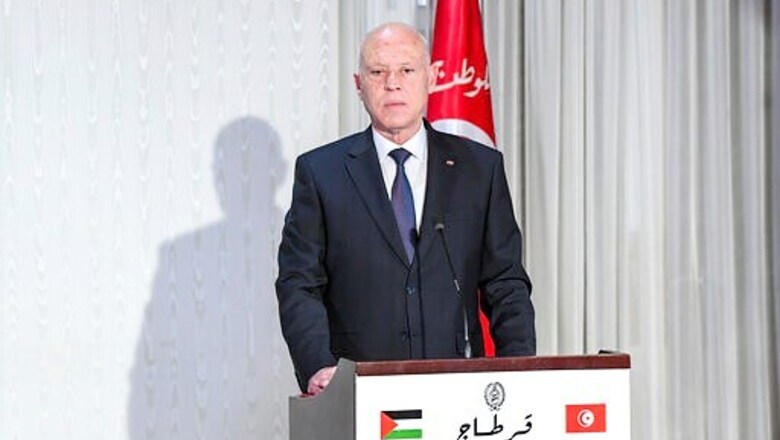
views
TUNIS, Tunisia: Tunisian President Kais Saied has prolonged the suspension of parliament and announced a national referendum, almost five months after dismissing his government and granting himself sweeping powers.
The announcement, he said, was an answer to many Tunisians demand for political change.
To those who are calling for a return (to the old system): we will never go back to what came before, said Saied.
In a televised speech Monday evening, Saied unveiled his plans to organize a nationwide, popular consultation, that will be held both online and offline from January to March 2022.
The consultation will then be reviewed by a committee and will form the basis for a national referendum on political reform that will take place on July 25, 2022. The referendum will be held across Tunisia and will reflect the will of the people, said Saied.
July 25 is both Tunisias Republic Day and when Saied froze parliament, dismissed his government and took on executive powers this summer. In September, Saied partially suspended the countrys post-revolutionary constitution and gave himself the power to rule by decree, raising fears of democratic backsliding. Critics have called Saieds measures a coup detat.
In Mondays speech, Saied also extended the suspension of Tunisias parliament until the next legislative elections, planned for Dec. 17, 2022. The elections will be held in the framework of the referendum results.
Saieds timeline marks symbolic dates in the North African nations calendar.
Since July, Saied changed the anniversary date of Tunisias 2011 revolution when former autocratic ruler Zine el Abidine Ben Ali fled the country to Dec. 17 to mark the day in 2010 when fruit seller Mohammed Bouazzi set himself alight, setting off the series of uprisings in Tunisia that led to what is now known as the Arab Spring.
Saied has frequently said Tunisias revolution ended in January 2011, usurped by corrupt and self-serving political forces that redirected Tunisias democratic path.
Saied announced his exceptional measures following antigovernment protests, and have proven widely popular with a Tunisian public fatigued by economic decline and years of political deadlock which have failed to answer some of the key demands of the 2011 revolution.
Bouazza Ben Bouazza contributed to this report in Tunis
Disclaimer: This post has been auto-published from an agency feed without any modifications to the text and has not been reviewed by an editor
Read all the Latest News here



















Comments
0 comment